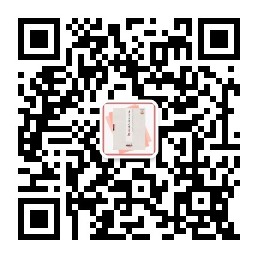Journal of Guangdong University of Technology ›› 2021, Vol. 38 ›› Issue (04): 41-51.doi: 10.12052/gdutxb.210022
Previous Articles Next Articles
A Microblog Opinion Leader Identification Method Based on Opinion Mining in Emergencies
Liu Gao-yong, Tan Yi-wen, Ai Dan-xiang, Huang Jing-zhao
- School of Management, Guangdong University of Technology, GuangZhou 510520, China
CLC Number:
- TP3-05
| [1] LAZARSFELD P F, BERELSON B, GAUDET H. The people’s choice[M]. New York: Columbia University Press, 1948. [2] 王佳敏, 吴鹏, 陈芬, 等. 突发事件中意见领袖的识别和影响力实证研究[J]. 情报学报, 2016, 35(2): 169-176. WANG J M, WU P, CHEN F, et al. Empirical study on recognition and influence of opinion leaders in emergency [J]. Journal of the China Society for Scientific and Technical Information, 2016, 35(2): 169-176. [3] 彭丽徽, 李贺, 张艳丰. 基于灰色关联分析的网络舆情意见领袖识别及影响力排序研究——以新浪微博“8·12滨海爆炸事件”为例[J]. 情报理论与实践, 2017, 40(9): 90-94. PENG L H, LI H, ZHANG Y F. Research on the identification and influence ranking of network public opinion leaders based on grey relational analysis [J]. Intelligence Theory and Practice, 2017, 40(9): 90-94. [4] 吴江, 赵颖慧, 高嘉慧. 医疗舆情事件的微博意见领袖识别与分析研究[J]. 数据分析与知识发现, 2019, 3(4): 53-62. WU J, ZHAO Y H, GAO J H. Research on Microblog opinion leaders identification and analysis in medical public opinion incidents [J]. Data Analysis and Knowledge Discovery, 2019, 3(4): 53-62. [5] 陈芬, 陈佩帆, 吴鹏, 等. 融合用户特征与多级文本倾向性分析的网络意见领袖识别[J]. 情报理论与实践, 2018, 41(7): 143-148. CHEN F, CHEN P F, WU P, et al. Online opinion leader identification method integrating user feature and multilevel text sentiment analysis [J]. Information Theory and Practice, 2018, 41(7): 143-148. [6] 安璐, 胡俊阳, 李纲. 基于主题一致性和情感支持的评论意见领袖识别方法研究[J]. 管理科学, 2019, 32(1): 3-13. AN L, HU J Y, LI G. A method of identifying opinion leaders based on topic consistency and emotional support [J]. Journal of Management Science, 2019, 32(1): 3-13. [7] 孙乃利, 王玉龙, 沈奇威. 微博客意见领袖识别的研究[J]. 电信技术, 2012(12): 78-80. SUN N L, WANG Y L, SHEN Q W. Research on the identification of microblog opinion leaders [J]. Telecommunications Technology, 2012(12): 78-80. [8] 魏志惠, 何跃. 基于信息熵和未确知测度模型的微博意见领袖识别——以“甘肃庆阳校车突发事件”为例[J]. 情报科学, 2014, 32(10): 38-43. WEI Z H, HE Y. Identify microblogging opinion leaders based on information entropy and unascertained measure model—taking “emergencies of Qingyang school bus” as an example [J]. Information Science, 2014, 32(10): 38-43. [9] 胡若涵, 张慧明. 中兴通讯案: 中美科技贸易摩擦的意见领袖识别研究[J]. 中国经贸导刊(中), 2018(23): 11-13. HU R H, ZHANG H M. ZTE case: research on the identification of opinion leaders in Sino-US technology trade friction [J]. China Economic and Trade Guide (Part 2), 2018(23): 11-13. [10] 陈芬, 高小欢, 彭玥, 等. 融合文本倾向性分析的微博意见领袖识别[J]. 数据分析与知识发现, 2019, 3(11): 120-128. CHEN F, GAO X H, PENG Y, et al. Text sentiment analysis and its application in Microblog opinion leader identification [J]. Data Analysis and Knowledge Discovery, 2019, 3(11): 120-128. [11] WIEBE J, WILSON T, BRUCE R, et al. Learning subjective language [J]. Computational Linguistics, 2004, 30(3): 277-308. [12] 杨武, 宋静静, 唐继强. 中文微博情感分析中主客观句分类方法[J]. 重庆理工大学学报, 2013, 27(1): 51-56. YANG W, SONG J J, TANG J Q. A study on the classification approach for Chinese Microblog subjective and objective sentences [J]. Journal of Chongqing University of Technology, 2013, 27(1): 51-56. [13] 丁晟春, 吴靓婵媛, 李红梅. 基于SVM的中文微博观点倾向性识别[J]. 情报学报, 2016, 35(12): 1235-1243. DING S C, WU L C Y, LI H M. Chinese Micro-blogging opinion recognition based on SVM model [J]. Journal of the China Society for Scientific and Technical Information, 2016, 35(12): 1235-1243. [14] 刘培玉, 旬静, 费绍栋, 等. 基于隐马尔可夫模型的主观句识别[J]. 中文信息学报, 2016, 30(4): 206-212. LIU P Y, XUN J, FEI S D, et al. Subjective sentence recognition based on hidden Markov model [J]. Journal of Chinese Information Processing, 2016, 30(4): 206-212. [15] 谭有新, 滕少华. 短文本特征的组合加权方法[J]. 广东工业大学学报, 2020, 37(5): 51-61. TAN Y X, TENG S H. Combined weighting method for short text features [J]. Journal of Guangdong University of Technology, 2020, 37(5): 51-61. [16] 杜洪涛, 王君泽, 李婕. 基于多案例的突发事件网络舆情演化模式研究[J]. 情报学报, 2017, 36(10): 1038-1049. DU H T, WANG J Z, LI J. Research on evolution Model of online public opinion in emergencies events based on multiple cases [J]. Journal of the China Society for Scientific and Technical Information, 2017, 36(10): 1038-1049. |
| [1] | Du Helen S., Li Zhan-yao, Li Dong-xia, Jiang Rui-xin. The Influencing Mechanism of User Empathy Expression and Purchase Intention in Interactive Social Media Advertising [J]. Journal of Guangdong University of Technology, 2021, 38(04): 17-25. |
|
||



